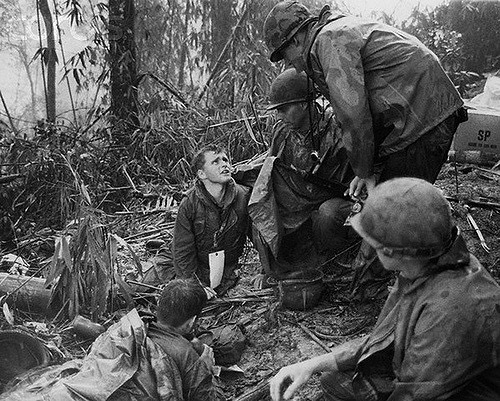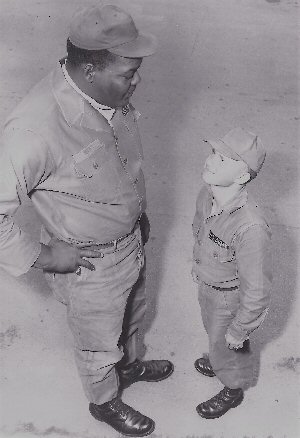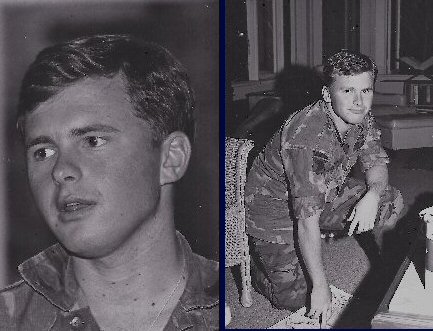“What you see is what you get,” Cliff Daly told me on our first date. Of, course I saw much more than others did. We’d gone to Evergreen High School together thirty years before and reconnected at his 30th reunion. That day it had taken a while for the dust to settle around Cliff. Everyone crowded around him as if he were a rock star, wanted to talk to their former head boy, student body president, star wrestler. By all reckoning he’d been the most popular and cutest boy in school.

He scribbled his phone number on a napkin after his entourage thinned out. “I’m too old for rejection,” he said with a wink. “I don’t initiate dates any more, so I don’t call women. But, if you’d like to get together for dinner some time, give me a call.” That napkin sat on a stack of bills and memos and quickly got buried in more. But, it kept resurfacing as though it had a will of its own. It took a month to finally make that call. We talked for three hours and soon found we had much in common: jazz, wine, love of Colorado, travel. To everyone’s surprise but our own, we married two months later.
|
Cliff is being informed that his friend and medic, Willie, who he supervised the role of Senior Aidman for Delta Company, was one of those killed in action on May 19th, 1969,in the battle known as Hamburger Hill. |
Cliff had purposefully dropped out of the University of Northern Colorado in Greeley to serve in Vietnam. While many of his peers were protesting the war on college campuses, Cliff was seeking Congressional letters of recommendation to apply for a height waiver to enlist. Cliff might have been a big fish in the little pond of high school among fewer than 500 students, but the Marines and the Army considered him a throw back at 4’ 10” tall, short of the 5’ height requirement. His persistence caught the attention of Army officials who felt someone that determined to serve his country also deserved to enlist. They soon realized he was a big catch in terms of public relations.
Cliff Daly’s photo and story drew the attention of the press all over the country. At a time when young men were leaving for Canada or eking out a minimum 2.0 GPA to keep their college deferments, Cliff became the Army’s PR spokesperson. An image of him looking up to a 6’6” giant in uniform was printed in newspapers large and small across the country.  Army press releases were sent out periodically during his basic training at Ft. Bliss and A.I.T. at Ft. Ord to chronicle him performing tasks like filling a large tank with water or running double-time to keep up with his comrades. Those were simple jobs for them but a challenge for Cliff. Many might have wondered how he had his own paparazzi, but he quickly won them over. What Cliff lacked in stature he made up for in personality. His soldier mates affectionately called him “Short Round.”
Army press releases were sent out periodically during his basic training at Ft. Bliss and A.I.T. at Ft. Ord to chronicle him performing tasks like filling a large tank with water or running double-time to keep up with his comrades. Those were simple jobs for them but a challenge for Cliff. Many might have wondered how he had his own paparazzi, but he quickly won them over. What Cliff lacked in stature he made up for in personality. His soldier mates affectionately called him “Short Round.”
After medic training, Daly was sent to the jungle in Vietnam where he tended to his wounded buddies as the Senior Aid Man (medic) for his Delta company’s three platoons in the 101st Airborne Division of the Army. He did not carry a rifle since he was already loaded down with first aid equipment. He had also accidentally released a trigger spring while cleaning his M-16 one evening and heard it ping across a ravine.
He rarely spoke of his service in Vietnam, so it took several years for me to understand his Purple Heart wasn’t his highest honor. He downplayed the commendation of Bronze Star, never explained the details. I did know he had a Silver Star in a frame, but it wasn’t his, he said. It belonged to a Lt. Gerald Torba whose life he’d saved. They’d both been in the M.A.S.H. together before he was transported to an army hospital in Okinawa to recover. In order to save the pilot’s life, Cliff had used a tourniquet which stopped the bleeding but cost Torba his leg. After Lt. Torba was awarded the Silver Star medal, he gave it to Daly. “You deserve this more than I do,”he told him. “You saved my life.” Cliff’s efforts to track him down after he was back in the US hit a dead end.
|
Pvt. Cliff Daly looks up to Sgt. Lawrence Reeves during his A.I.T. training. The Army used this image of contrasts to promote recruitment. |
So, finally for Veteran’s Day 2016, Cliff gave permission to post a photo of him online. Most he had were faded and yellow, neglected in old torn albums like the painful memories of the war. The email included one decent head shot  and the letter of commendation describing his valor in earning the Bronze Star with “V” Device. That email started a cascade of responses from siblings and his children who had their own images and stories. None were so exciting as cousin Patrick’s. Being a Daly and, therefore a war buff, he’d googled images of Hamburger Hill and up popped a photo of medic Cliff Daly in the jungle surrounded by other soldiers. The image was sharp and focused and Cliff had never seen it before.
and the letter of commendation describing his valor in earning the Bronze Star with “V” Device. That email started a cascade of responses from siblings and his children who had their own images and stories. None were so exciting as cousin Patrick’s. Being a Daly and, therefore a war buff, he’d googled images of Hamburger Hill and up popped a photo of medic Cliff Daly in the jungle surrounded by other soldiers. The image was sharp and focused and Cliff had never seen it before.
For someone who reserves crying openly to when the Broncos lose the Super Bowl, Cliff became very emotional seeing that picture. He had just tended to Willie, another medic, and then saw to the needs of twenty other wounded buddies and put them on choppers for transport out, having drug himself by his elbows from soldier to soldier to dress their wounds. He couldn’t walk. His hamstring muscle had been sliced open. The white tag pinned to his fatigues was his med-evac boarding pass to the M.A.S.H. but he made sure everyone else got evacuated first.
He was sitting on his good butt cheek when his sergeant approached to relay sad news. Willie had not made it. The anguish on Cliff’s face in that picture encapsulated the agony that was Hamburger Hill. Given its provenance with the Bronze Star commendation, it captured the moment of his valor and bravery during that slaughter.
What you see looking at Cliff Daly is not all of what you get. To others, he may be a balding gimpy 4’ 10” guy on the outside, but he’s a very big man at heart. He’s a Vietnam war hero.